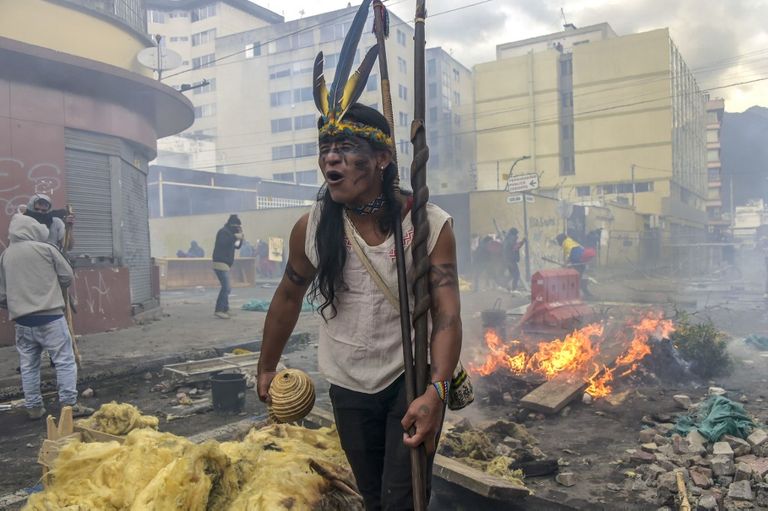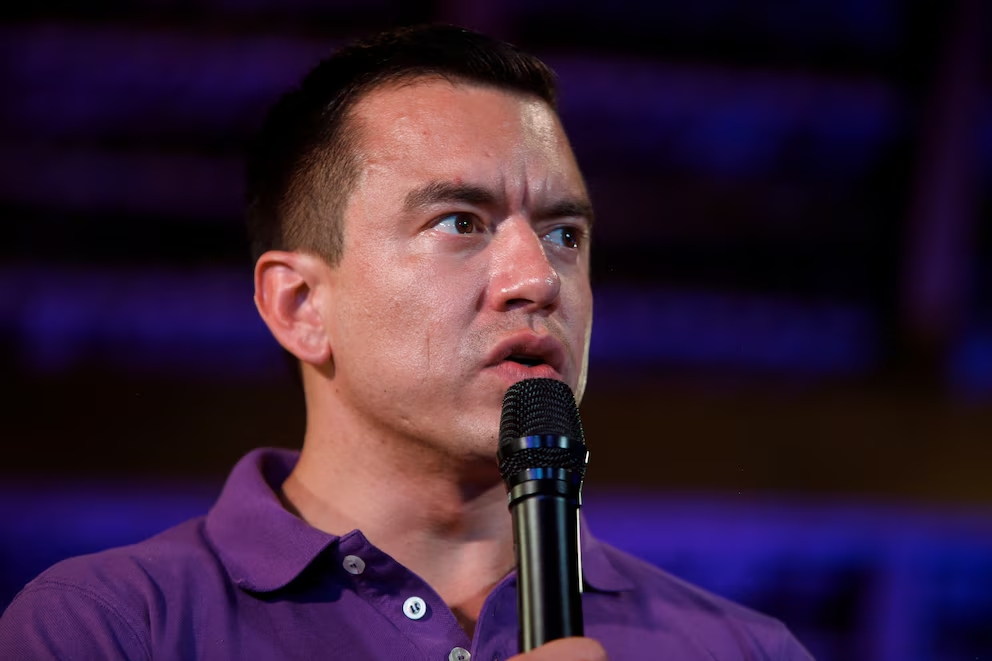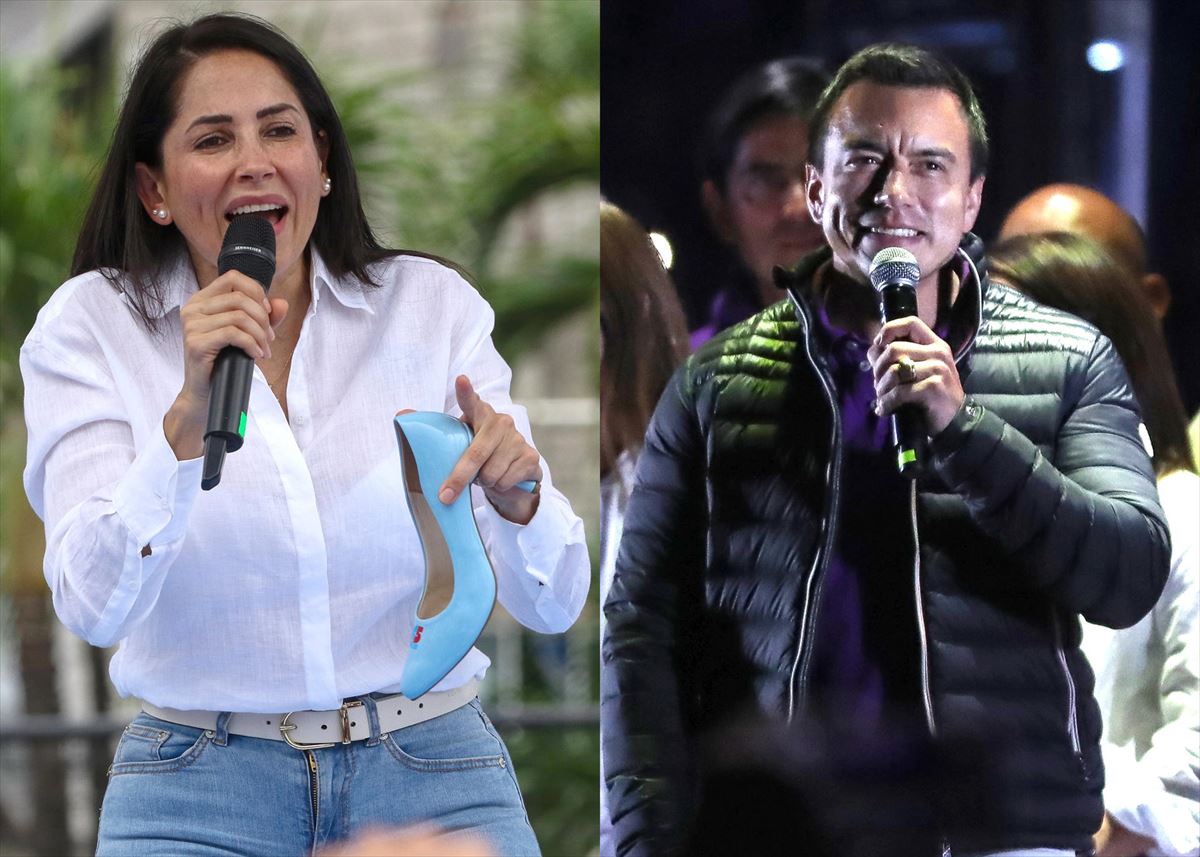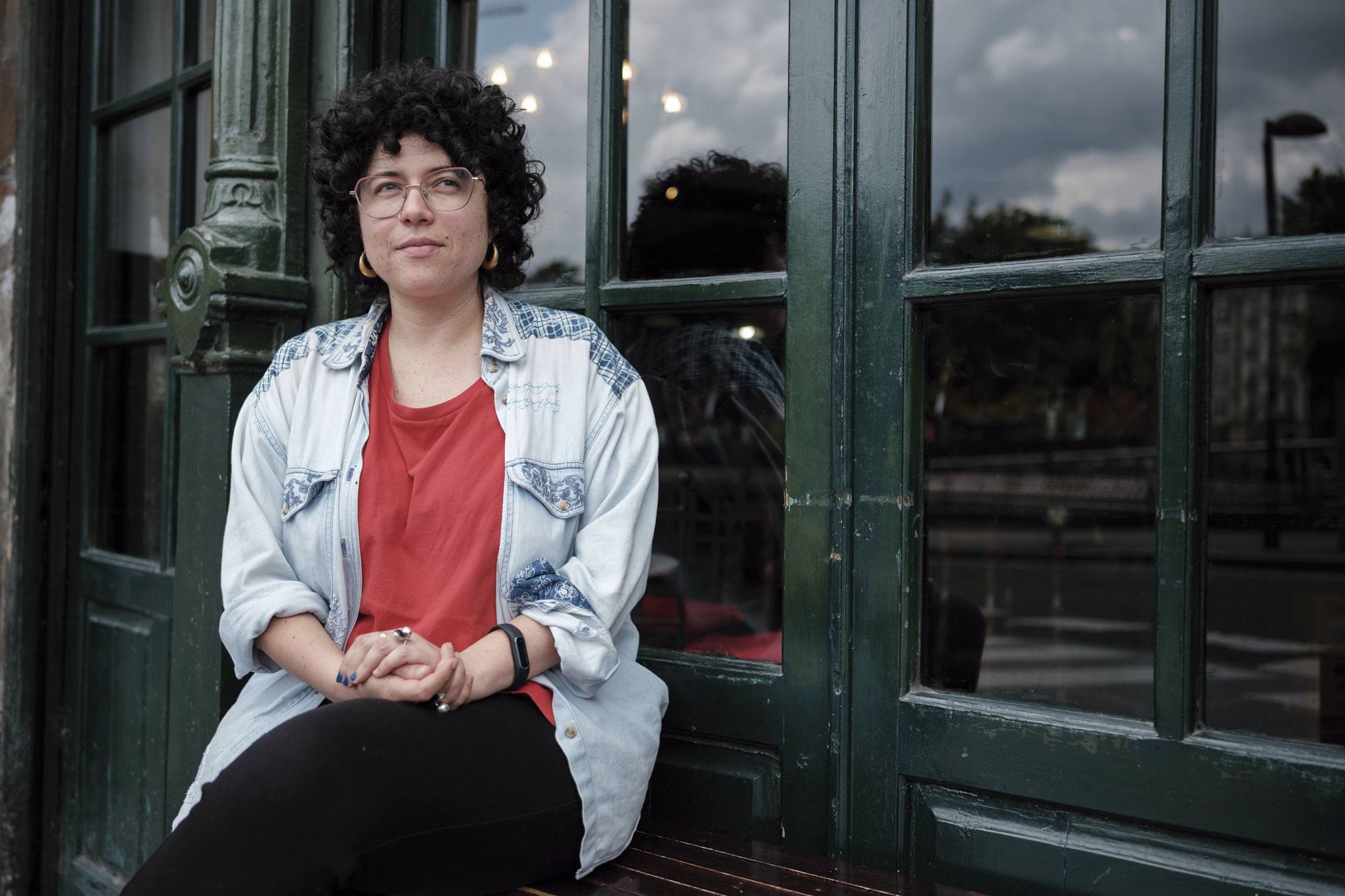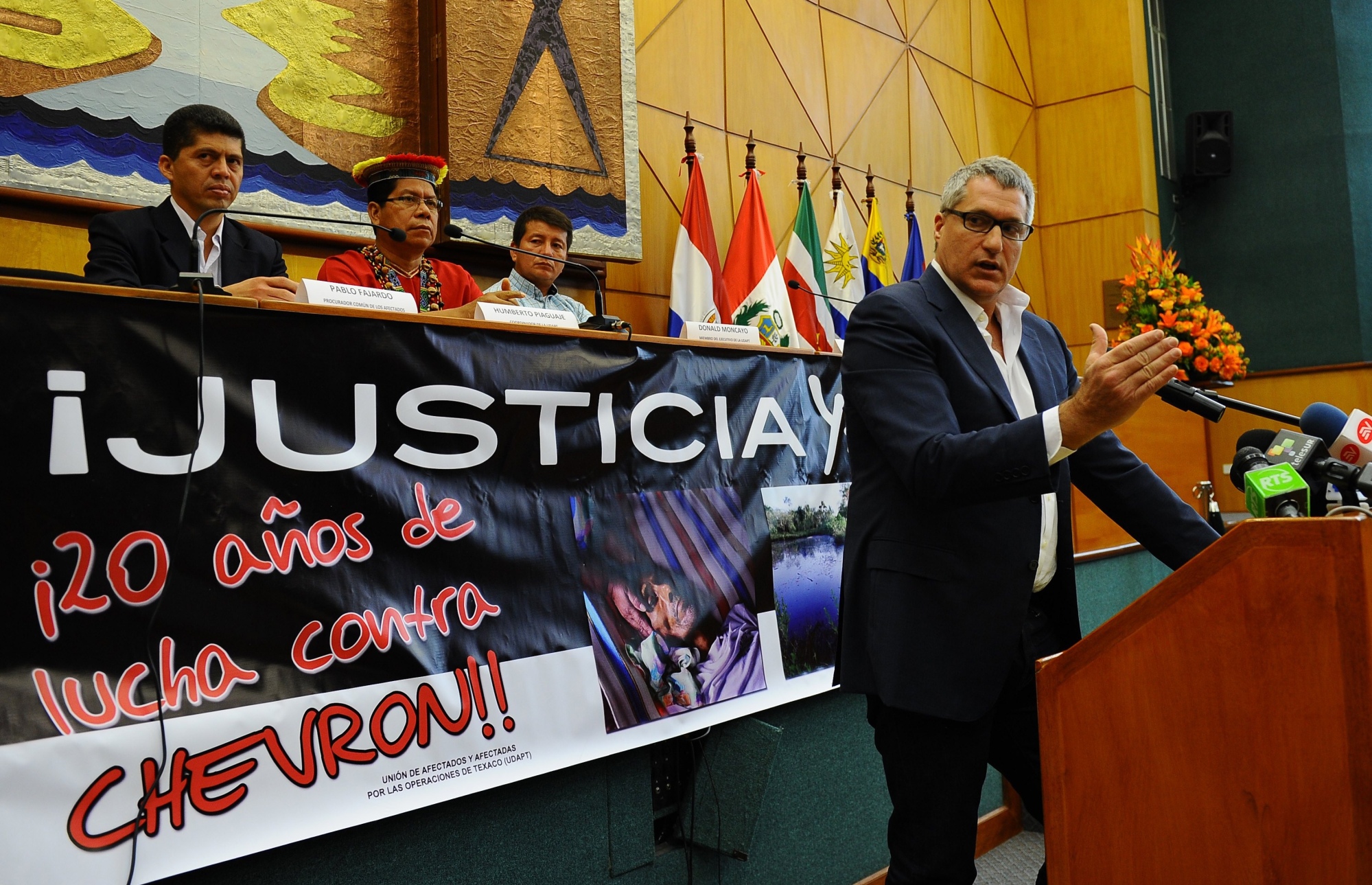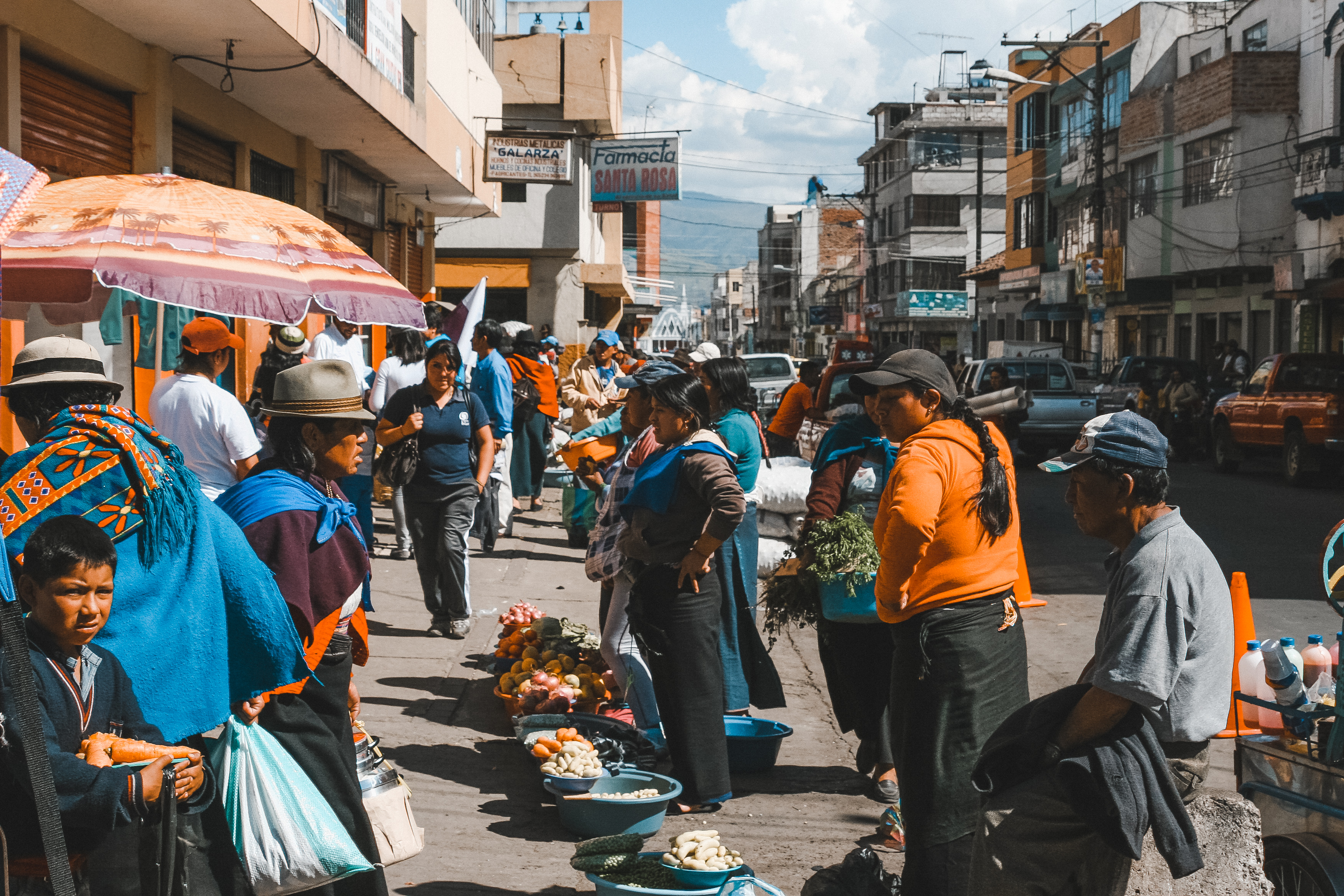New wave of indigenous people
- Thinking about it -- it's a month since I came back from America -- a continent, whatever it is, is too big, too broad, you can't hug anyone, because it has always had the size of the whole earth. Beyond this earth are the oceans and the heavens, and the horizon, a symbol of infinity and of all transcendence.
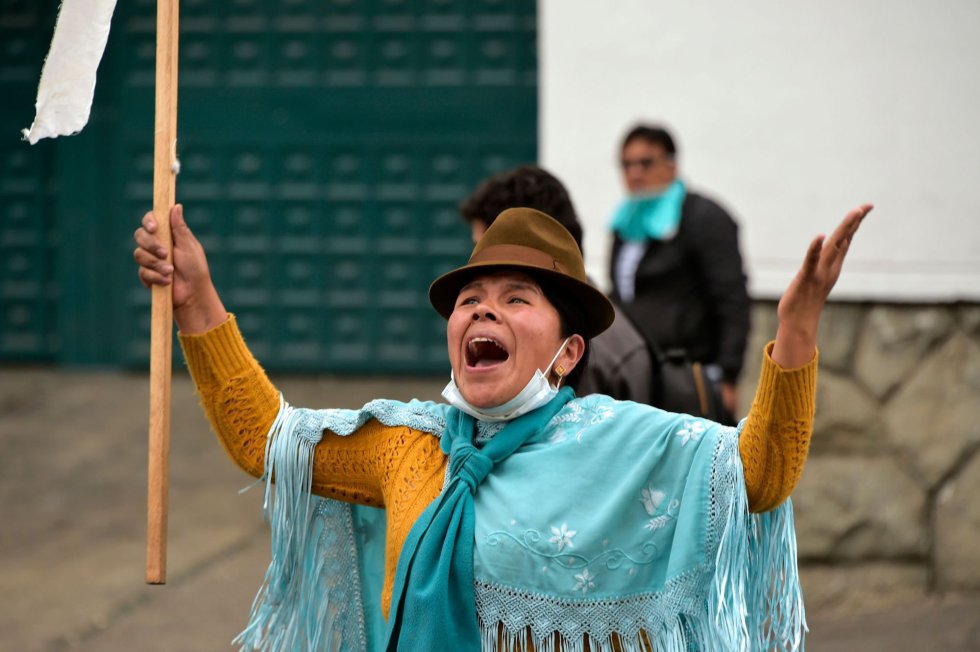
It was more than a month since the boats of yesteryear had come to America from Europe, for a long period of scarce resources to go through a medium of exaggerated depth, of strength and whim: the ocean. It was understood, therefore, that the feeling of not having been anything, beneath his mystery or his horror, for the benefit of God, so that they arrived 500, 400, 200 good years ago.
This perception has changed a great deal for those who, in a few hours – not even a whole day – land at the airport of New York or Buenos Aires after taking an aircraft in Madrid or Paris. But the body perceives the impact of this violent displacement, we call it jet lag and we attribute it to the change of time, as if it were a small inevitable obstacle – headache, rarity of constitution…. We are not like those Indians who, having been hired to transport the supplies of an expedition to the mountain, sat on the ground on the third day and remained motionless for two whole days. The pleas and threats had been useless. After this time they rose up and continued without making any request or explanation to their white masters. They later knew the reason: “We had gone too fast. That’s why we had to wait for our souls to come to us.”
With all knowledge, but without thinking, I went for three months to America, without changing latitude in the first step, from Madrid to New York. I spent several weeks there and headed south, where I spent my second stay in the small Antilles. Finally, far from Europe – but in European languages, surrounded by people of European origin… – I went to Ecuador. America is not just a continent. As well as being the largest with Asia, it is the only one that runs through the North of the world entirely, imagine if all of Europe and Africa come together. That's why we say, maybe, America, in plural.
I already knew and thought that every continent change is both a journey through time. Too many changes together! Displaced by altitudes and latitudes (the city of Cuenca was 2,560 metres high, about 300 kilometres under the equatorial line, therefore, in the tropics), those of European origin were a minority and, living in our time – what worries me most was precisely the contemporary – forced me to enter an environment full of impressions of a time that was no longer mine. In addition, with the syndrome of the conscious tourist, I prohibited myself hotels or tourist circuits to know the territory. I was in Cuenca, and not anywhere else, because a friend from there would welcome me into his house and I wouldn't move from there, except for the ordinary trips that anybody from there did.
.JPG)
Walking around that city, eating in its markets, or getting close to its library or theater, I felt like I was playing some of the European atmosphere of a hundred or two hundred years ago, but that was only part of a contemporary reality. Its old part, declared a Cultural Heritage of Humanity, is full of colonial architecture, but the old courtyards, the car parks, are the majority of days. At the same time, shoemakers, bakers, tailors, lawyers or mechanics open their workplaces at street level and, on more than one occasion, live in them in buildings of one or two heights. As if the digital age had not come, if not because the many telephone shops that can be found in all the streets would give us that impression. Record bookstores and DVDs are also very numerous, but don't look for an original copy, as they are all just removed from the network. The latest movies you'll find for a dollar. A dollar is there the universal price: a dollar, three beautiful avocados; a dollar of coconut water, a dollar and a lunchtime meal… I found a bookstore where the books followed the usual commercial path; the other forty or a hundred books were photocopied, but of a decent aspect.
Following the previous invitation, I took the road to the mountain by bus with a shaman surrounded by bumps. On the contrary, that man did not look like an Indian, but he was going to correct the last ritual of the youth encounter that had just been held in the newly named prefecture. We headed for a mountain about 500 meters high “below”, about 2,500 meters, and the landscape also changed: the cultivation fields and the grasslands were mixed with eucalyptus plantations on the first steps. Above, he did not know the primary forest full of species, but also the huts and the farmhouses, cows or horses. My friend went into a trade with a pick-ap auto-taxi, which left the bus in a small village and was engaged in transporting people and cargo. Upon entering one of them, the paved roads would end immediately and, after losing us a couple of times, we reached the meeting point of the young people, located under a waterfall of 100 meters.
(1).jpg)
I sought as a journalist one of his spokesmen, who explained to me that there were about 200 people gathered for four days, most of the Jibones Valley, but also of the capital Cuenca. The water leap we had behind us came from Kimsakotxa, a very extensive place, in which the name of the water defense was “Yaku Wambrakuna” with the words “Water” and “Youth”. At that time a musical theatre was being held and then the manifesto summarizing those meetings would be read: “…the reality we have analyzed fills us with sadness and despair, but we are rebellious, like so many of our ancestors, creatures of hope, willing to fight for the profound changes that we urgently need … We young people will not receive this decadent political practice in which consciences are sold in exchange for certain currencies. Nor are we going to allow the use of social struggles as a political platform. Our way of understanding politics is based on precision and ethics, and we call for participation in the struggles that seek common goals, taking on the diversity of their expressions, mobilizations and cultures. Thus they become artistic activities and at the core of the strength of art, consciousness and struggles.”
I was surprised by the maturity, the tone of these words. Then, the ritual lasted for a couple of hours: a wide “chacan” drawn in the ground with four main seeds of these lands, formed by overlays of a regular and square cross, and a kind of mandalah full of color; a spiral and a hummingbird of other seeds in the center. In each of the four branches, a door for the great world and the Spirit; the fire, the songs, the dances, the silences… To end, a community food called “pampa mesa”: in the long fabric that opens in the earth, all the meals are distributed and sit by hand, each one that needs.
.jpg)
The word Yaku (“Ur”) was very present in the area, and it was the first time that the newly elected indigenous for the prefecture: Whoever was baptized as Carlos would be Yaku. In the last six years he was president of the ECUARUNAREN association, the Quechua of the Ecuadorian Mountain, the main confederation of the peoples in the last half century. My friends had told me about that man. The new prefect of the Azuay region stood out in the fights for water defense in recent decades, detained five times and one of the best known people among the Ecuadorian Indians and the Nordic countries of the area. Would it be possible to make an appointment with him? Yes, it was possible, he had opened his room door wide and appealed to a secretary. Yaku uses two whole days of the week to have direct conversations with any group approaching him, and I too would have been greeted in one of those gaps.
I spent a week in the municipal library reading their books. Lawyer, he had written his most famous book on indigenous justice, over 500 pages long, but there were also several more: Everything or water. Kimsakocha, resistance by water (“Ur ala urrea. Kimsakotxa, resistance to water”), Educational Reform and Cultural Ethnocide (“Educational Reform and Cultural Ethnocide”), signed by the governing council of ECUARMEDIA, or the one I had just published and hand gifted La Resistencia (“Resistance”). “This is another world,” it was inevitable to think. What requirements would it have to meet in Europe or in the Basque Country to interview lehendakari in a region such as Azuay (Navarra, with a population of about one million, with the third capital of Ecuador…)?
As in all of America, this environment is filled with Basque surnames. In a convent of four hundred years, Otxoak, Larrea, Luzuriaga narrate the exploits and death of the Zabala sword. And the Papers, how not. It is in these places that the crazed hero or anti-hero of Araotz faced the almighty emperor of Castile Philip II, until he was lost in the dream land of “El Dorado” and began to conquer the regency of Peru. “Ah, the Basques!” answer surprised when you tell them something about the origin or meaning of those last names.
Statistics say “indigenous” are 8% across Ecuador, but community leaders say otherwise: “We will be 30%.” That 8% is the one who says to himself as an indigenous person and that is what the questioner says. After centuries of contempt and oppression at all levels, a minority takes as a symbol the dignity or pride of the losers; the majority chooses reduced survival until it overflows.
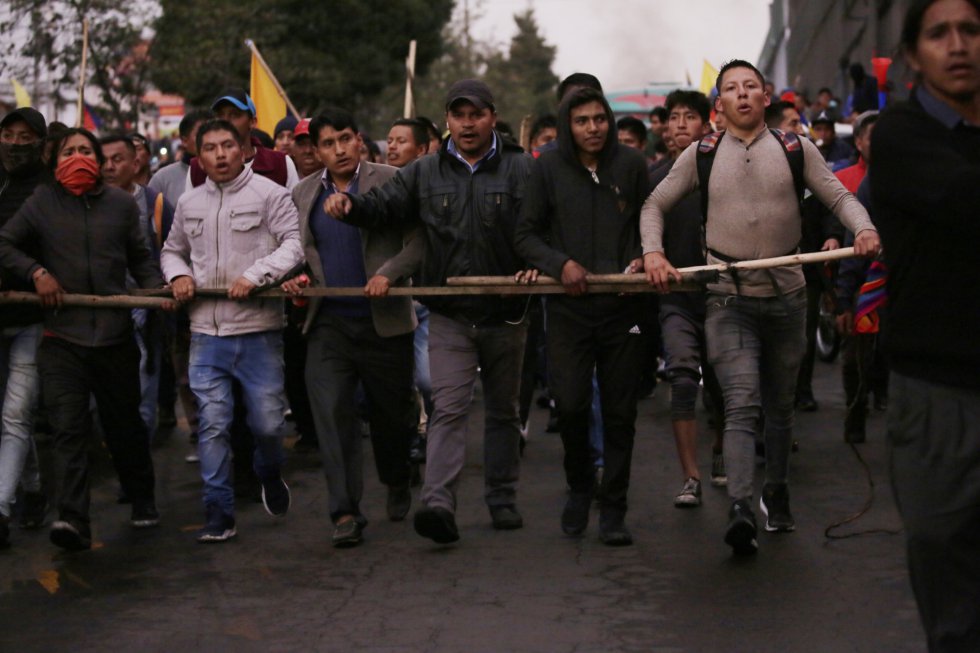
That is what came to light in the riots last October. The peoples of origin assume leadership and mediation on behalf of the other uprising movements and have full capacity to interact with the representatives of the State. The transporters rose up against government measures; they cut off the roads and stopped all over Ecuador, but they retired for the third day. As the cities were already burning and the indigenous announced that “we are going to the capital”, the Government of Ecuador moved to a “safer city”, from Quito to Guayaquil, the most dangerous city for its fame, but not for the oligarchs.
Eight days later, the two sides met in Quito: CONAIE leaders – a confederation that brings together indigenous people from all over Ecuador, from the jungle and from the mountains – and heads of state (government, National Assembly, etc. ). After they had until then been treated as the “vagos”, the “terrorists”, the “puppets of the government of Venezuela and the corrupt Correa” – the most common racist insult was “Go back to the wasteland!” – in front of the live television cameras, they managed to eliminate the measures that provoked the revolt, neutralizing one by one the supposed reasons of the powerful.
What is there different? - I wonder. He was still in the Basque Country, and he was reading every day the news coming from there, as well as the tests carried out by the European Left; the speeches by former President Correa, who was a refugee in Belgium (together with the MEPs of Ezker Batua): “The uprising against the World Monetary Fund”, “the failure of neoliberal intimidation”… And yes, if it existed, it would emerge something else. We kept on with the traditional patterns and prejudices looking up there, and some variables, perhaps the most important ones, were escaping us.
The eight weeks I did in Cuenca passed very quickly. I had the opportunity to approach the Amazon, which was built when the oil fields began in the city of Macas and in the natural park of Caja, which surrounds Cuenca. They call it "paramo," a territory at 3,500 and 4,000 meters high, but it's not the dead land that we represent. The beauty and variety of plants, trees, birds and other animals that inhabit the site is amazing. Among many other strangers, the mids I saw were emerald blue, and the bears and wolves, which you can't see, had a special look. Many members of the camel family (flames, alpacas…) and, among them, water: lakes and ponds, fountains and a warm fabric soaked with plantar moss. It was hard for the bellows to follow, but it was worth savoring the illusion that they were walking around in a world before names were invented.
As we have said, the indigenous peoples of America are present in Ecuador, as present as it is denied, – the very word “America” is absurd from their point of view; for them it is Abya Yala, a continent that tells us about the measure of colonialism, unexpectedly in us. In the nomenclatures, only European names appear on the plates of squares and streets, many Basques. And a tourist as conscious as I don't know where to steer the feeling.
Perhaps this is the way in which we have a third attitude towards these people: the missionaries. Yours has been an ambivalent trend from the outset, offering the path of legitimization that even the reddest oppression needs, but at the same time, witness this oppression and almost the only whistleblower. I took advantage of my visits to Quito and Guayaquil to visit missionaries from my village that I had not seen for decades. The meetings were beautiful, and later it came to my mind – it has always seemed surprising to me – that this intermediate position that has developed from the strongest of the conquest to this day should continue with the attempts to think and explain. Taking into account that our “internationalists” and many NGOs are also part of the missionary tendencies, the heroic choices of those who choose to give life to a Cause of the Beyond.
.jpg)
Ecuador is not Cuba, Nicaragua or El Salvador. Indeed, there were revolutionary armed groups at the time when this trend spread, but the most famous of them bore the name that resembled the cry of a Mexican ruler – AVC “Alfaro Vive, Carajo!” – and decided to surrender the weapons before the Basques knew them. The missionaries entered the jungle and the survivors did the deepest investigations of their inhabitants. My friends told me that there are still some who have left their name, their language or their character and have been admitted to one tribe or another. In Quito, in the university library held by the Salesians, they keep the deepest and most extensive anthropological work in Ecuador; for centuries, a Basque priest has passed through the Ecuadorian region of Los Ríos...
As in the air were violent and warm impressions of Cuenca, Quito or Guayaquil, asking what was the closest to these three places: the indigenous, the Basque settlers, the missionaries. In the meantime, I allowed the subtle ways and the vigorous medicines that had been offered to me for free to do their job.
REFERENCES:
INREDH, for human rights, peoples and nature
Andean Journal of Political Studies:
Organizations of Peoples of Ecuadorian Origin:
Confederation of Indigenous Nationalities of Ecuador
Confederación Kichwa del Ecuador
Federation of Indigenous and Peasant Organizations of Azuay (FOA)
(This article was posted in the 247 issue of LARRUN)
Ekuadorren 14 nazionalitate daude, eta oraino bizirik dirauten beste hainbeste hizkuntza, UNICEFen 2008ko informearen arabera. Kitxua da hedatuena, Kolonbia eta Peruko Andeetan ere egiten dena, guztira bi milioi eta erdi eledunekin. Xuar taldekoak Amazonian bizi dira, Ekuadorren eta Perun, eta 80.000 inguru izanik, erdiak baino gutxiagok erabiltzen dute xuar hizkuntza. Askoz ere tamaina apalagoan geratzen dira gainontzekoak, asko desagertzeko zorian (awapita, tsafikia, kaiapa, siona, sekoia, zaparoa…).
2008ko Ekuadorreko Konstituzioak espresuki errekonozitzen ditu haien eskubideak, laugarren kapituluan, 21 artikulutan ondo xehatuz: “Identitateak, antzinako tradizioak eta berezko dituzten erakundeak mantendu eta sustatu behar dira” (57.1). “Haien lur komunitarioak zatiezinak eta besterenezinak dira” (57.4). “Inoiz aldaketa planak sustatzen badira, kontsultak bideratu beharko dira” (57.7). “Heziketa interkulturala eta elebiduna sustatu beharko da” (57.14). Hizkuntzak, beraz, ofizialki errekonozituak dira eta teorikoki babestuak maila guztietan. Praktikan, aldiz, ezerezean geratzen da errekonozimendu hori eta ez dira errekurtsoak bideratzen hezkuntza elebiduna edo gainontzeko oinarriak ipini ahal izateko.
“Heziketa elebiduna etxeetako korridoreetan sortu zen: herrietako haurrak eta nerabeak, baita nagusiak ere –oso gaztetan ezkontzen zituzten neskak, ugazaben bortxaketak saihesteko ahaleginean–. Auzolanean eraikitako udaletxeetara aldatu zen gero; estatua zergak kobratzera baino ez zen agertzen bertan. Heziketa erreboltari hau ez zen batere formala; haurrak ez ziren gela itxietan gordetzen, komunitatearen esparru zabaletan tartekatzen ziren bertako bizitzaren bitartez, gure ama-hizkuntzan eta gure mundu-ikuskeran hezi zitezen. Arrazionaltasuna ez zen nagusitzen: errituak, mitoak, sinboloak eta filosofia indigenaren gainontzeko osagaiak harekin batera zetozen” (Yaku Pérez, Reforma Educativa y Etnocidio Cultural. ECURUNARI, 2019 liburuan).

.jpg)
Erreferentziak:
Zortzi hildako, 1.340 zauritu, 1.192 atxilotu eta 883 dekretua, indargabetua. Hauxe litzateke zifra hotzetan, urriko hamaika eguneko altxamenduaren balantzea Ekuadorren. Baina ez da gehiegi arakatu behar beste zerbaiten arrastoak antzemateko. Alfer huts gisa (“erlamandoak!”) presidenteak irainduak izan ostean, urriaren 13ko irudi bat nabarmendu zen guztien begi bistan: mugimendu indigenaren ordezkariak estatuko botere nagusien aurrean herri oso baten hitza ordezkatuz eta haien eskakizunak betearaziz: ez soilik neurri ekonomiko onartezin batzuk atzera botaz, nazio aniztasuna zer den ere adierazpide garbiz erakutsiz.
Hau ez da, inondik ere, garaipen erabatekoa. Ez dakigu nola bideratuko dituen orain estatuak Nazioarteko Diru Funtsak ezarri nahi dizkion errezetak eta etorriko diren eraso berrien aurreko erantzunak. Baina komeni da gogoratzea historia hau ez dela berria. 1992an, Quitoraino 500 kilometroko ibilaldia burutuz, Amazoniako 1’2 milioi hektarea haien ondare izendatzea lortu zuten. 1994ko eta 1995eko mobilizazioek atzera bota zituzten nekazarien gizarte segurantzaren eta lur komunalen pribatizazioa sustatzen zituzten legeak. 1997an eta 2000n Abdalá Bucaram eta Jamil Mahuad presidente neoliberalen gobernuak erauzi zituzten. Gerora, gauzak katramilatu ziren eta mugimendua zatikatu zen, hainbat gobernuren kolaborazioa eta Rafael Correaren aupatzea tarteko. 2015erako mobilizazioetan argi geratu zen, halere, azkenaren eta indigenen arteko talka, aurtengoan gertatu bezala.
Jatorrizko herriak dira Ekuadorren antolatuenak eta kontzientziatuenak, eta haien legitimitatea erabatekoa dela agerian geratu da oraingoan. Inguruko beste lekuetan ez bezala –Kolonbian, Perun edo Bolivian, esaterako– konfederazio bakarrean elkartzen dira han Amazoniakoak eta Andeetakoak, baina horrek ez du esan nahi mugimendu zabalaren baitan ezberdintasunak ez daudenik. Eta hiri nagusietan –Quiton eta, batez ere, Guayaquilen, non kokatzen diren kreoleen oligarkiaren indar nagusiak– indigenen aurkako oldarrak beldurgarria izaten jarraitzen du.
